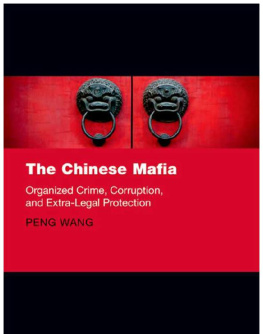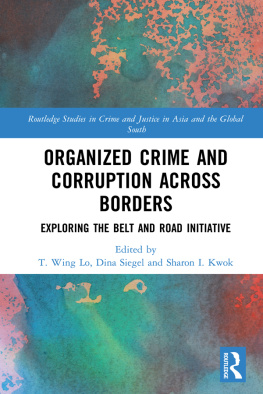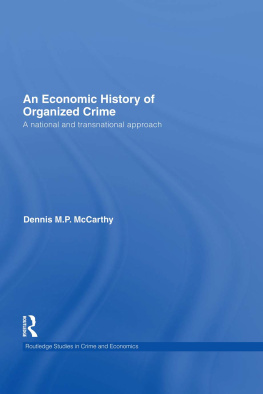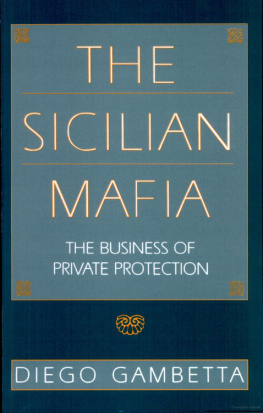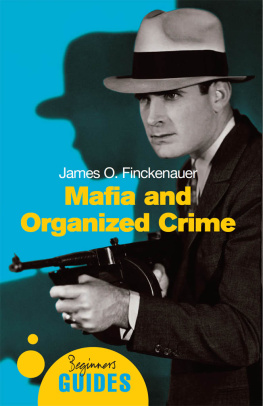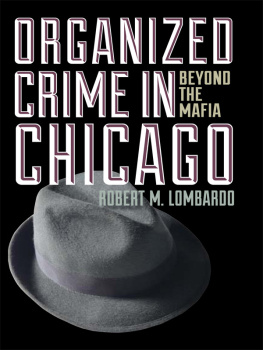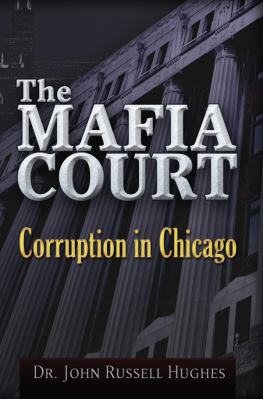CLARENDON STUDIES IN CRIMINOLOGY
Published under the auspices of the Institute of Criminology, University of Cambridge; the Mannheim Centre, London School of Economics; and the Centre for Criminology, University of Oxford.
General Editors: Jill Peay and Tim Newburn
(London School of Economics)
Editors: Loraine Gelsthorpe, Alison Liebling, Kyle Treiber, and Per-Olof Wikstrom
(University of Cambridge)
Coretta Phillips and Robert Reiner
(London School of Economics)
Mary Bosworth, Carolyn Hoyle, Ian Loader, and Lucia Zedner
(University of Oxford)
RECENT TITLES IN THIS SERIES:
Dirty Money: On Financial Delinquency
Ruggiero
Reinventing Punishment: A Comparative History of Criminology and Penology in the Nineteenth and Twentieth Centuries
Pifferi
Taking Care of Business: Police Detectives, Drug Law Enforcement and Proactive Investigation
Bacon
The Politics of Police Detention in Japan: Consensus of Convenience
Croydon
Dangerous Politics: Risk, Political Vulnerability, and Penal Policy
Annison
The Chinese Mafia
Organized Crime, Corruption, and Extra-legal Protection
PENG WANG
OXFORD
UNIVERSITY PRESS
Great Clarendon Street, Oxford, OX2 6DP,
United Kingdom
Oxford University Press is a department of the University of Oxford.
It furthers the Universitys objective of excellence in research, scholarship, and education by publishing worldwide. Oxford is a registered trade mark of Oxford University Press in the UK and in certain other countries
Peng Wang 2017
The moral rights of the author have been asserted First Edition published in 2017 Impression: 1
All rights reserved. No part of this publication may be reproduced, stored in a retrieval system, or transmitted, in any form or by any means, without the prior permission in writing of Oxford University Press, or as expressly permitted by law, by licence or under terms agreed with the appropriate reprographics rights organization. Enquiries concerning reproduction outside the scope of the above should be sent to the Rights Department, Oxford University Press, at the address above
You must not circulate this work in any other form and you must impose this same condition on any acquirer
Crown copyright material is reproduced under Class Licence Number C01P0000148 with the permission of OPSI and the Queens Printer for Scotland
Published in the United States of America by Oxford University Press 198 Madison Avenue, New York, NY 10016, United States of America
British Library Cataloguing in Publication Data
Data available
Library of Congress Control Number: 2016963447 ISBN 9 78-0-19-8 75840-2
Printed and bound by
CPI Group (UK) Ltd, Croydon, CR0 4YY
Links to third party websites are provided by Oxford in good faith and for information only. Oxford disclaims any responsibility for the materials contained in any third party website referenced in this work.
General Editors' Introduction
Clarendon Studies in Criminology aims to provide a forum for outstanding empirical and theoretical work in all aspects of criminology and criminal justice, broadly understood. The Editors welcome submissions from established scholars, as well as excellent PhD work. The Series was inaugurated in 1994, with Roger Hood as its first General Editor, following discussions between Oxford University Press and three criminology centres. It is edited under the auspices of these three centres: the Cambridge Institute of Criminology, the Mannheim Centre for Criminology at the London School of Economics, and the Centre for Criminology at the University of Oxford. Each supplies members of the Editorial Board and, in turn, the Series Editor or Editors.
Peng Wangs book The Chinese Mafia: Organised Crime, Corruption and Extra-legal Protection, based on his PhD thesis from Kings College London, gives an insight into what the world might look like if the rule of law was only partially operational, or indeed, broke down altogether. The need for extra-legal protection and enforcement becomes evident. Wangs book is not the first to explore these issues. Gambettas (1993) The Sicilian Mafia traced the role of a weak state, a weak judicial system, rampant corruption and an urgent need to protect private property rights as the precursors to the emergence of the Sicilian Mafia. Vareses (2001) study of the Russian Mafia documented similar themes. But Wangs book is based in China, where the authoritarian party-state is strong, albeit seemingly not strong enough to resist the rise of a Chinese Mafia, or protect its own government officials. Peng Wang is the first to offer a scholarly account of the rise of the Chinese Mafia in the post Mao-era. This is not a historical study of Chinese secret societies, like the Shanghai Green Gang, or of the Triads. It is a contemporary study of the collusion between organized crime and state corruption. And one that was conducted at a time of massive economic expansion in China, and during a period when China was reaching out to world. The financial gains to be made were spectacular.
Through the use of published materials and his careful empirical work based on interviews and focus group discussions in two Chinese cities, Qufu and Chongqing, Wang documents two major types of extra-legal networks, those of the Black Mafia and the Red Mafia. He traces the distinctions between them and charts the important role to both of guanxi: a Chinese variant on the concept of social capital, which manifests itself in a network of secret secure channels to frustrate criminal investigation and forestall punishment. The Black Mafia, essentially a street-gang based organisation, are more in keeping with stereotypical understandings of the mafia with an emphasis on the use of threats and violence to provide extra-legal protection. The Red Mafia embrace corrupt government networks, and facilitate private protection through the abuse of power, albeit they are partially reliant on the Black Mafia for enforcement. Wang documents how the Red Mafia have also begun to infiltrate and commandeer organised crime groups generally. Both Red and Black are supported by guanxi, which parallels the legal system; guanxi both supplants the rule of law and promotes corrupt networks between criminals and government officials.
The nexus between the Red and Black Mafia is essential to both protection and enforcement activities. Whilst visible, these processes are neither transparent nor open; tangible and intangible reciprocity between officials and criminals ensures continuity, but it is self-perpetuating. It is therefore of some small comfort that Wang asserts that there is no evidence to show that criminal organisations have established mutually beneficial networks with top politicians. Indeed, the Chinese government have organised a series of campaigns to tackle the Red Mafia, and the latest initiative, under President Xi Jinping, is, as Wang acknowledges, multifaceted and long-term, targeting both high ranking and junior officials. Yet even these initiatives appear doomed to fail, as their focus on the swiftness and severity of punishment both undermines due process and fails to emphasise certainty of punishment through its selective approach. Some are favoured, some are not. And as criminologists know from studies of incapacitation, creating a vacuum by removing deviant elements can simply free-up space for new illegal activity. Tackling corruption is enormously complex, and, as Wang argues, arguably more so within a one-party state.

